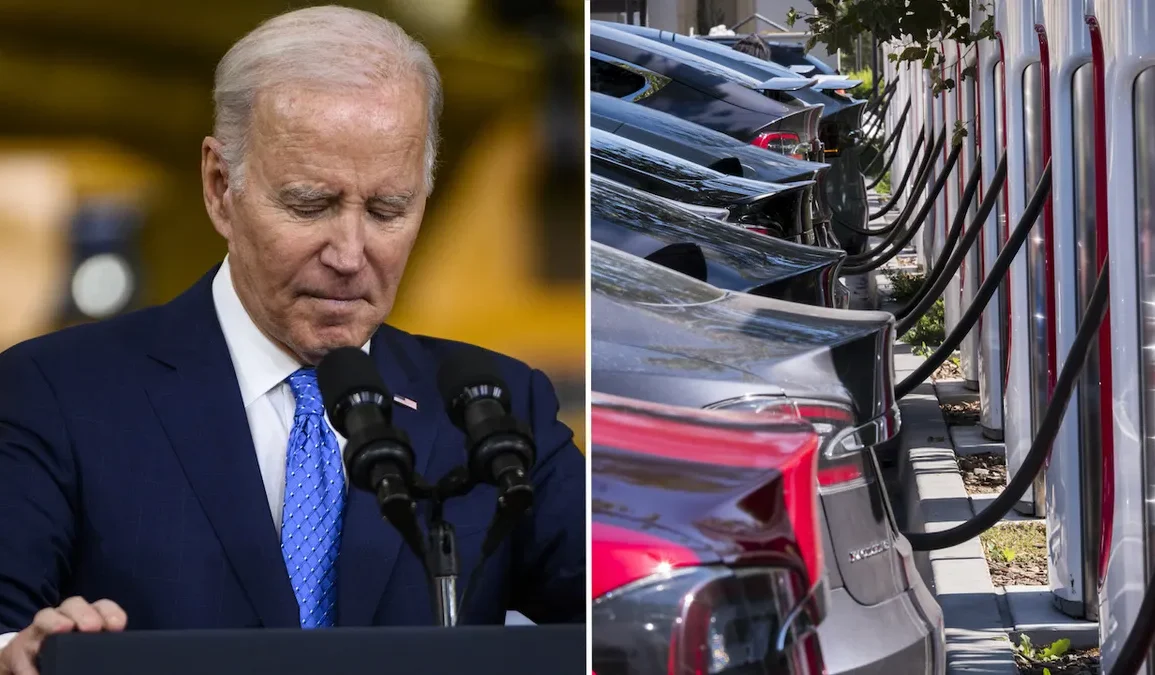The Biden administration’s push for electric vehicles (EVs) is facing criticism from consumer advocates and energy industry groups who argue that the proposed tailpipe emissions standards amount to a “de facto electric vehicle mandate.” The Environmental Protection Agency (EPA) is planning to ensure that 67% of new car sales are electric by 2032. However, reports suggest that the White House is doubling down on this goal while loosening earlier targets.
Critics of the plan argue that it would restrict consumer choice and access to a range of vehicle options that fit their needs and budgets. The American Fuel & Petrochemical Manufacturers, a group that has lobbied against the EPA’s proposal, stated that “lowering the pace of the forced transition would not help consumers or protect our country’s energy security.” They argue that the Biden administration is aiming to ban new gas-powered cars, regardless of the pace of implementation.
President Biden had previously set a goal of ensuring that 50% of car purchases are electric by 2030. The White House believes that the EPA’s tailpipe rules would provide a “clear pathway for a continued rise in EV sales.” However, there are concerns about the feasibility of these targets, as the broader push for mass EV adoption has faced obstacles such as declining sales and rising prices.
The reported delay in the implementation of the standards is said to be a result of concerns raised by auto union leaders. Automakers would then be required to rapidly comply with the standards within a short period of time. Critics argue that this delay does not change the outcome, as the Biden administration is still attempting to force automakers to produce only electric vehicles, despite the lack of market demand.
Opponents of the proposed standards argue that EVs are not yet ready for widespread adoption. They contend that while EVs may be a choice for some consumers, the majority still prefer affordable and reliable conventional vehicles. The high cost of EVs remains a significant barrier, with the average cost of an EV being around $52,500 compared to $24,000 for an average gas subcompact car.
The EPA’s proposed tailpipe emissions standards have faced considerable pressure from industry and Republican lawmakers, who argue that the market is not ready for such a massive increase in EV purchases. They also express concerns that the proposed standards would benefit China and lead to higher prices for Americans.
According to industry group Alliance for Automotive Innovation, only 9.3% of total car purchases in the U.S. last year were electric or plug-in hybrid. While this figure has increased from 7% in 2022, the majority of EV purchases are concentrated in California and urban areas. This highlights the limited adoption of EVs outside of specific regions.
In conclusion, the Biden administration’s ambitious push for electric vehicles is facing criticism from various stakeholders. Critics argue that the proposed tailpipe emissions standards amount to a de facto electric vehicle mandate, restricting consumer choice and access to affordable vehicles. Concerns about the feasibility and market demand for EVs, as well as the high cost compared to conventional vehicles, have been raised. The delay in the implementation of the standards does not change the ultimate goal of the administration, which is to ban new gas-powered cars.




